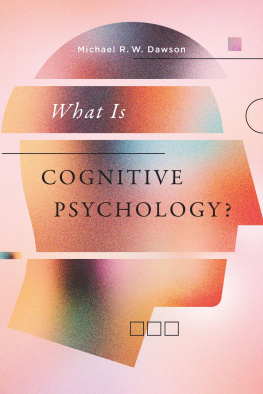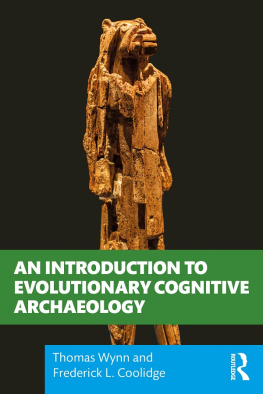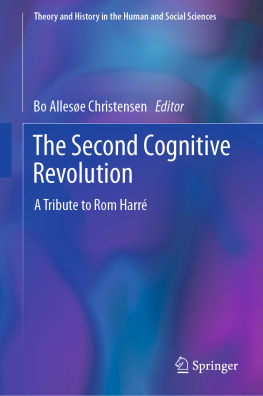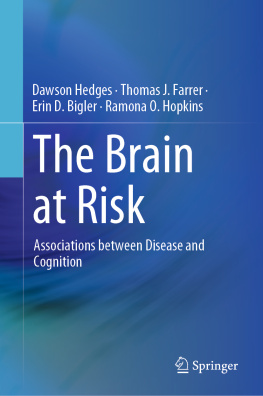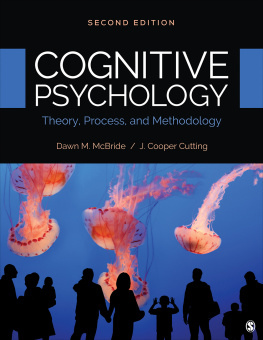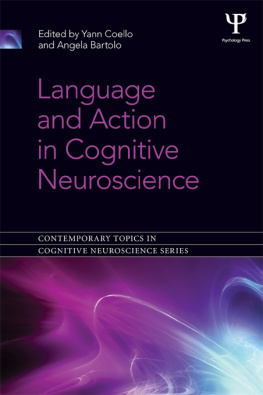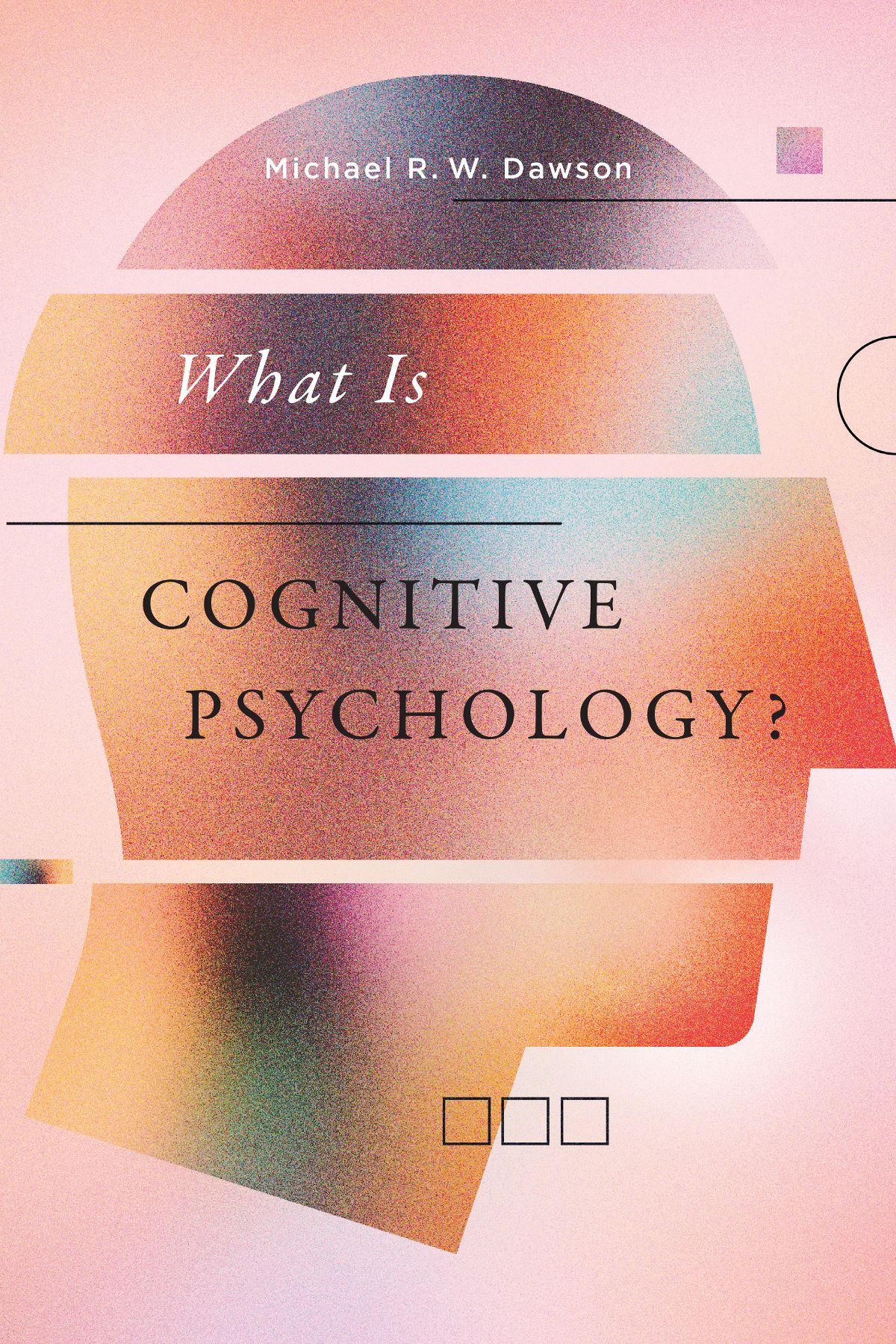
What Is Cognitive Psychology?
What Is Cognitive Psychology?
Michael R. W. Dawson

Copyright 2022 Michael R. W. Dawson
Published by AU Press, Athabasca University
1 University Drive, Athabasca, AB T9S 3A3
https://doi.org/10.15215/aupress/9781771993418.01
Cover design by Sergiy Kozakov
Library and Archives Canada Cataloguing in Publication
Title: What is cognitive psychology? / Michael R. W. Dawson.
Names: Dawson, Michael Robert William, 1959 author.
Description: Includes bibliographical references.
Identifiers: Canadiana (print) 20220254389 | Canadiana (ebook) 20220254400 | ISBN 9781771993418 (softcover) | ISBN 9781771993425 (PDF) | ISBN 9781771993432 (EPUB)
Subjects: LCSH: Cognitive psychology.
Classification: LCC BF201 .D39 2022 | DDC 153dc23
We acknowledge the financial support of the Government of Canada through the Canada Book Fund (CBF) for our publishing activities and the assistance provided by the Government of Alberta through the Alberta Media Fund.


Please contact AU Press, Athabasca University at for permissions and copyright information.
This publication conforms to the EPUB Accessibility 1.0 specification of WCAG 2.0 Level AA.
Contents
Acknowledgements
Many people offered support while I wrote the book. My colleagues Michael Carbonaro, Ben Dyson, Dana Hayward, and Peggy St. Jacques kept me on track. Many students in my laboratory offered feedback: Kezziah Ayuno, Nick Huber, Helen Ma, E. J. Meneses, George Nassar, Arturo Perez, and Stephanie Zawaduk. I would like to dedicate the book to Anna, Aubrey, and Wren.
I would never have written this book without Albert Katzs influence. Alberts many contributions to my career include introducing me to cognitivism when I was his student at the University of Western Ontario. This book reflects my journey from my first class with Albert to my current research in cognitive science.
What Is Cognitive Psychology?
Introduction
Nineteenth-century psychology began the experimental study of consciousness (Boring, 1950). Two competing early-20th-century North American schools of psychology, structuralism and functionalism, continued this tradition. A new school, behaviorism, attacked psychologys mentalism, reacting against both structuralism and functionalism (Watson, 1913). The time seems to have come when psychology must discard all reference to consciousness; when it need no longer delude itself into thinking that it is making mental states the object of observation (Watson, 1913, p. 163).
Behaviorism soon dominated 20th-century psychology, changing the fields topics and inspiring new methodologies. Behaviorism aimed to remove the barrier from psychology which exists between it and the other sciences. The findings of psychology become the functional correlates of structure and lend themselves to explanation in physico-chemical terms (Watson, 1913, p. 177). For behaviorists, behavioral theories explained, but mentalistic theories did not (Skinner, 1950, 1977, 1990).
Cognitive psychology began to replace behaviorism in the 1950s, bringing mentalism back to psychology (Glenberg et al., 2013; Leahey, 1992; Miller, 2003; Sperry, 1993). Discoveries in cybernetics and computer science inspired the cognitive revolution (Miller et al., 1960; Newell & Simon, 1956, 1961). Cognitivists argued that behaviorism could not explain phenomena such as language (Chomsky, 1959). Cognitivists claimed that behaviorists viewed humans as passive responders. Cognitivists instead viewed humans as active information processors.
Cognitivism dominates modern psychology. For example, my department lists 73 courses in its 202021 undergraduate calendar; nearly half (33) explore cognition, with titles such as Cognitive Psychology, Spatial Cognition, Introduction to Cognitive Neuroscience, Social Cognition, and Theory and Learning in Comparative Cognition.
The cognitive revolution ended decades ago. As the debate between cognitivism and behaviorism faded into history, cognitive psychologys theoretical foundations also seemed to become forgotten. What is cognitive psychology?
I often ask students to define cognitive psychology to begin my third-year Foundations of Cognitive Science course.
Next page
